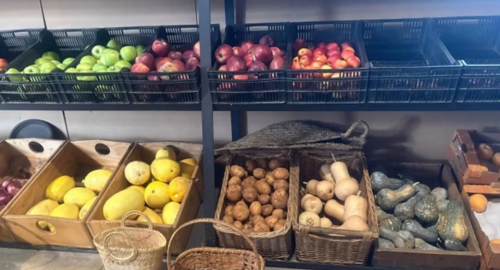News
Global Food Leaders Gather in Joburg as Africa Hosts WUWM Conference for the First Time

When Johannesburg hosted the World Union of Wholesale Markets (WUWM) conference for the first time on African soil, history was made. To influence the direction of the world’s food markets, the esteemed international gathering brought together prominent figures in trade, agriculture, and food systems.
The conference was proudly held at Africa’s largest fresh produce hub, the Johannesburg Market. Sello Makhubela, its acting CEO, called the occasion a turning point for the agricultural industry on the continent.
Makhubela stated, “This is an opportunity to transform our local food systems and absorb global expertise—it’s more than just a conference.” “In Johannesburg, we now have access to top-notch insights.”

Picture: EWN
A Worldwide Conversation on Regional Issues
Experts, economists, and decision-makers from all over the world attended the WUWM conference. Their objective is to address the growing issues facing agriculture, such as altered trade patterns and climate threats.
Economist Ayabonga Cawe of the South African International Trade Administration Commission emphasized the importance of striking a balance between export potential and local food security.
“Our goals are to become self-sufficient in essential crops and increase our market share internationally,” Cawe said.
Collaboration and Climate Change Take Center Stage
One of the main topics of discussion was climate change. Extreme climate change will have a significant impact on Southern Africa’s food production, according to Dr. Yolandi Ernst of the Global Change Institute.
She claimed that the rate of warming in our area is almost twice that of the rest of the world. “We need to take immediate action to modify our farming practices and get ready for a hotter, drier future.”
“We can’t rely on generic models,” Ernst emphasized, emphasizing the necessity for indigenous solutions. Africa requires its own data, systems, and future course.
“Food systems contribute nearly 35% of global greenhouse emissions,” said economist Phelisa Nkomo, echoing these views and emphasizing the need for international cooperation. International cooperation is therefore non-negotiable on its own.
A Vision for Innovation and Food Security
Joburg Market, the host, reaffirmed its dedication to promoting food security and trade innovation. The occasion demonstrated Johannesburg’s goal of taking the lead in developing inclusive, sustainable food systems for the continent.
In keeping with the city’s overarching goal of delivering dignity via housing, food, and infrastructure, the market continues to be a ray of hope for South Africa’s urban agricultural strategy.
Follow Joburg ETC on Facebook, Twitter , TikTok and Instagram
For more News in Johannesburg, visit joburgetc.com
Sourced:City Of Joburg
Picture: Time Out



























